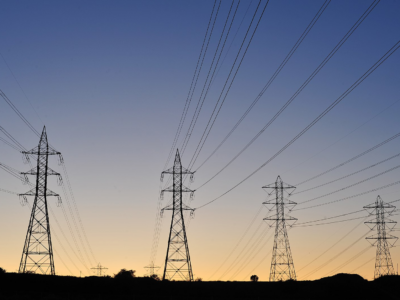To See What Is In Front Of One’s Nose…

“… is a constant struggle.” — George Orwell.
In my post a couple of days ago, I neglected to mention one huge issue before the Supreme Court in Kiobel v. Royal Dutch Petroleum. Although the Court originally granted cert on the issue of corporate liability, the Supremes kicked it back last February for reargument this term on the issue of extraterritoriality. In the light most favorable to the defendants, Kiobel involves a case between plaintiffs who are not US citizens and a non-US defendant corporation regarding activity that did not take place within the United States. So what in the world (literally) is the case doing in American courts?
On Tuesday, the Justices spent a great deal of time on this question, and over at the invaluable and consistently excellent Opinio Juris blog, they are currently engaged in spilling thousands of pixels on the issue. It’s not too hard to see the problem if viewed in the light most favorable to the defendant: does the Alien Tort Claims Act gives American judges to patrol the world for human rights violations? (Snark of the day: why is it that when conservatives get into power, they feel the need to invade every country that they don’t like on the grounds of a “Freedom Agenda”, but reach frantically for scented handkerchiefs when faced with the prospect of a court doing the incomparably more modest step of having a trial?).
But it seems to me that this mis-casts the whole issue, at least in the specific case of Kiobel. Consider these facts:
1. Forty percent of Nigerian oil production goes for sale in the United States. In other words, the events at issue in Kiobel were intimately connected with the United States even though they did not occur there.
2. The Kiobel plaintiffs are not US citizens, but they are legally resident in the United States (indeed, if they were citizens, the ATCA wouldn’t apply). I do not know their specific immigration status, but I would assume that they are here for reasons having to do with human rights, i.e. they have received refugee, asylee, or even permanent resident status. In other words, American law has decided that it takes an interest in having them here on the grounds of underlying facts precisely at issue in this lawsuit. It has given them formal legal status, however, wholly apart from whether they were contemplating a lawsuit. This isn’t a “tag — you’re it” scenario reminiscent of Van Duesen v. Barrack, a now-disfavored Supreme Court opinion from the 60’s holding that a plaintiff can go to a state for purposes of jurisdiction and choice of law, and then move to transfer it to a more convenient location while keeping its desired substantive law.
3. Royal Dutch Petroleum is often also known as Royal Dutch Shell. What we Americans know as Shell Oil Corporation is actually a subsidiary of RDS. There are 25,000 Shell stations in the United States. Shell has 22,000 US employees. RDS is listed on the New York Stock Exchange. Yes, yes: a subsidiary is different from the parent company. But here we are asking whether it seems fair or reasonable (or even whether “traditional notions of fair play and substantial justice”) for the United States to take an interest in the suit. RDS has decided that it wants to take advantage of the vast American market. It is hardly inapposite for US policy to say “if you want access to our markets, we have the right to hold you accountable for gross human rights violations”.
Under these circumstances, it seems to me quite formalistic to describe this case as one in which the United States has no interest, or one in which American judges are galavanting around the world in search of monsters to destroy.
The oil market is a global market. Oil prices are set globally.
“Anybody who follows the oil industry will tell you that it doesn’t make any difference where the oil comes from,” says Keith Crane, an energy expert at RAND Corp.
Global oil markets are so intertwined, Crane says, that changes in any one part of the system can trigger effects elsewhere.
It’s fascinating listening to judges worry about the consequences of letting judges make decisions. Some of them seem downright determined to ensure their own irrelevance.







Reader Comments